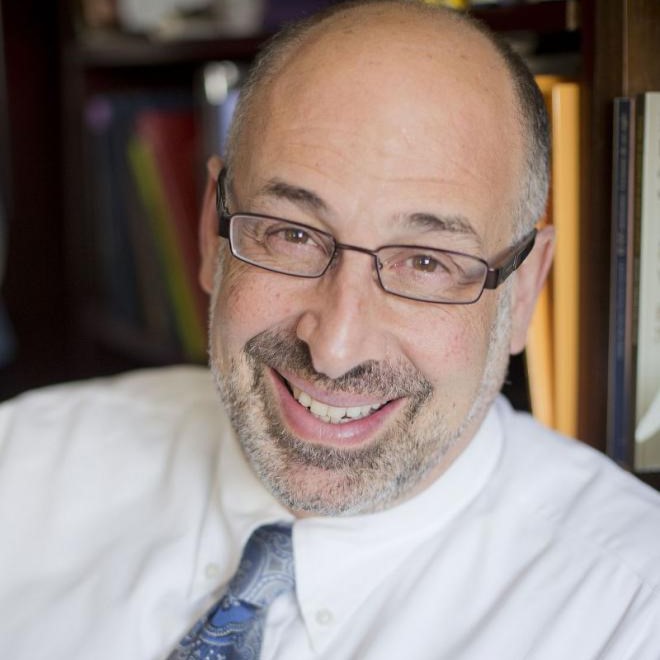Jeffrey LesserSamuel Candler Dobbs Professor of History
Jeffrey Lesser, Samuel Candler Dobbs Professor; modern Latin American history, focusing on health, ethnicity, immigration, and race, especially in Brazil.
My focus is on how people live different aspects of their daily lives in Brazil’s present and past. My recent projects analyze how patients, health care professionals, and policy makers interact with each other and the built environment. I am particularly interested in how people live and work within rigid social and material structures that often misattribute the relationship between cause (culture) and effect (disease), leading to enduring health issues. Many of my previous projects examined the constructions of identities, especially how ethnic groups like Asian-Brazilians, Arab-Brazilians, and Jewish-Brazilians understand their own and national spaces. My research is important to my teaching, and many of my classes include oral and digital history projects. See, for example, Pauliceia 2.0, Windows into English Avenue and Vine City, and Nikkei Identity in Oizumi, Japan.
My newest book is Living and Dying in São Paulo: Immigrants, Health, and the Built Environment in Brazil (Duke University Press, 2025) and the revised Brazilian edition, Viver e morrer em São Paulo: Imigração, saúde e infraestrutura urbana (século XIX até o presente) (São Paulo: Editora UNESP, 2025). Living and Dying In São Paulo examines the competing visions of wellbeing among immigrants and representatives of the Health State including policymakers and health care professionals. The book analyzes how these actors lived and worked within rigid social and material structures that misattributed the relationship between cause (culture) and effect (disease) and thus led to enduring health issues. Living and Dying places the past and the present into conversation using archival materials, observation, oral histories, and geographical/cartographic data. My historical techniques include the analysis of discourse and social history approaches for data including materials produced by public health professionals at the local, municipal, and state levels, and documents generated by the public including by local community, labor, and religious institutions. As part of the project, I was embedded within a primary care team of the Brazilian National Health Service (SUS).
Both the English-language and Portuguese-language editions of Living and Dying in São Paulo are available as open access eBooks via awards from the Andrew W. Mellon Foundation funded Emory University Digital Publishing in the Humanities program. Some additional publications from this project can be found here:
- "Between harm and health: Jews, non-Jews, and the making of São Paulo, Brazil"
- "Afinal, o que é o Brasileiro"
- "Committing to Continuity: Primary Care Practices During COVID-19 in an Urban Brazilian Neighborhood"
- "Transmissão pessoa a pessoa: análises sociológicas da pandemia COVID-19"
- "The Social Geography of Zika in Brazil"
- "A geografia social do zika no Brasil"
I am also the author of Immigration, Ethnicity and National Identity in Brazil (Cambridge University Press, 2013; Editora UNESP, 2015), A Discontented Diaspora: Japanese-Brazilians and the Meanings of Ethnic Militancy (Duke University Press, 2007; Editora Paz e Terra, 2008), awarded the 2010 Roberto Reis Prize (Honorable Mention), Brazilian Studies Association; Negotiating National Identity: Immigrants, Minorities and the Struggle for Ethnicity in Brazil (Duke University Press, 1999; Editora UNESP, 2001), awarded the Best Book Prize, Latin American Studies Association-Brazil in Comparative Perspective Section; and Welcoming the Undesirables: Brazil and the Jewish Question (University of California Press, 1994; Imago Editora, 2005; Tel Aviv University Publishing Projects, 1997), awarded the Best Book Prize, New England Council on Latin American Studies.
I am the series editor (with Matthew Gutmann) of The Global Square: Into the 21st Century (University of California Press) and co-editor (with Raanan Rein) of Rethinking Jewish-Latin Americans (University of New Mexico Press, 2008). I am also the editor of Searching for Home Abroad: Japanese-Brazilians and Transnationalism (Duke University Press, 2003); and Arab and Jewish Immigrants in Latin America: Images and Realities (Frank Cass, 1998).
While at Emory University I have had numerous administrative roles including as Director of the Halle Institute for Global Research, Chair of the History Department, Director of the Tam Institute for Jewish Studies, and Director of the Latin American and Caribbean Studies Program.
Education
- BA, Brown University, 1982.
- MA, Brown University, 1984.
- PhD, New York University, 1989.
Interests
- Latin American History
- Ethnicity, Race, and National Identity
- Immigration
- Jewish Studies
Current Graduate Students
Doctoral Graduates
- Debjani Bhattacharyya (University of Zurich)
- Andrew Britt (The University of Texas at Austin)
- Chris Brown (InGenius Prep)
- Melissa Creary (University of Michigan)
- Jonathan Coulis (Emory University)
- Glen Goodman (Arizona State University)
- Suma Ikeuchi (University of California - Santa Barbara)
- Rafael Ioris (University of Denver)
- Xanda Lemos
- Mollie Nouwen (Willamette University)
- Benjamin Nobbs-Thiessen (The University of Winnipeg)
- Cathy Ouellette (Muhlenberg College)
- María de los Ángeles Picone (Boston College)
- Jennifer L. Schaefer (University of Connecticut)
- Lena Suk (The University of Texas at Austin)
- Ariel Svarch (Pontificia Universidad Javeriana)
